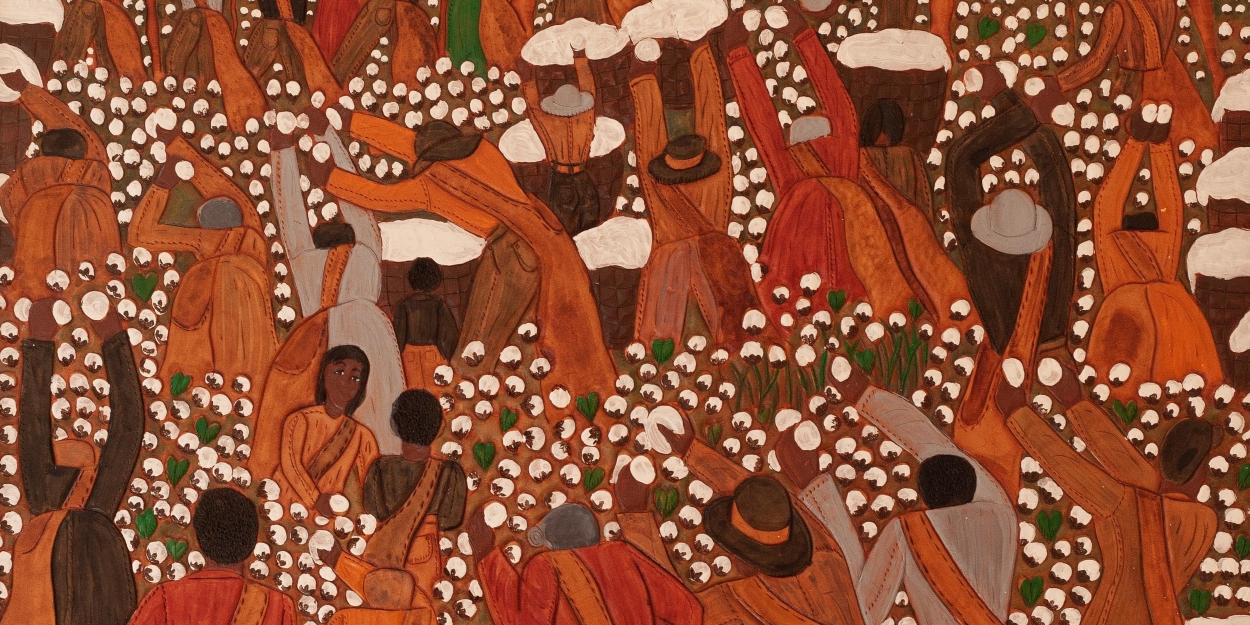HARD TIMES Exhibition Opens at Hauser & Wirth Los Angeles
It is on view Friday, May 31 – Saturday, August 25, 2024.

Working in his signature medium of carved and painted leather, late American artist Winfred Rembert (1945 – 2021) dedicated the last thirty years of his life to creating a striking visual memoir. The consistently powerful and original oeuvre he left behind is a testament to the improvisational skill, determination and resilience required of a visionary shaped by a lifetime of extreme adversity. On 30 May, when Hauser & Wirth debuts the first-ever Los Angeles exhibition devoted to Rembert at its Downtown Arts District complex, West Coast audiences will finally have the opportunity to experience his story, told with beauty on leather.
‘Winfred Rembert. Hard Times' includes paintings from two of the artist's most recognizable bodies of work— the Cotton Field and Chain Gang collections. Reflecting his upbringing on a sharecropping field in Georgia in the 1950s and his labor on a prison chain gang in the 1960s and ‘70s, the exhibition is dedicated to a pair of harrowing but formative chapters in Rembert's life. At once figural and abstract, painted and sculptural, Rembert's compositions feature varying palettes, ranging from the natural tones of the leather and the graphic use of black and white to the incorporation of vibrant blocks of color.
In his Pulitzer Prize winning memoir, ‘Chasing Me to My Grave,' Rembert describes the cotton fields as his very first memory. He underscores the gravity of this nascent but indelible image, noting, 'Looking up at his parents is the first thing a child is supposed to remember. Not me. It seemed like I opened my eyes to cotton.' On view in the exhibition, Hard Times (2003) is one of many paintings that depict workers bent over endless rows of white tufts that dot the landscape and subsume the visual plane. The sculpturally carved and painted leather here bear exquisite detail—each worker's clothing is adorned with carefully crafted seams, featuring intricate beveling that adds unexpected depth. Equally novel is Rembert's perspectival daring; the horizontal foreground sharply transitions to a rising verticality, absent of a discernible skyline.
Rembert's works range from straightforwardly illustrative to extremely complex compositions that verge on abstraction. In the latter category is All of Me (Date unknown), a work that teems with the bent bodies of men in black-and-white striped prison uniforms digging ditches and breaking rocks on the chain gang. Recalling the grueling physical labor he endured, Rembert states, ‘The mental cruelty may have been worse than the physical cruelty.' Collectively the figures in All of Me represent the multiple personae he adopted to survive such inhumane treatment while incarcerated. Refusing to be what the guards wanted him to be, he chose to evade their psychological traps by assuming all identities. In his memoir Rembert writes:
‘You have to play a role that isn't really you. It's like slavery. You have to meet all those demands and keep a sense of yourself as well. You don't want to be identified with any of the roles you have to play, so you are all of them. It's like all of you and everybody else around you are all tied up into one.' Reflecting on this survival strategy, he stated, ‘I think if I hadn't decided to play the All Me role on the chain gang, I wouldn't have made it. Taking that stance—All Me—saved me.'
It was Rembert's wife Patsy who encouraged the artist to begin tooling and painting the story of his life on leather—a skill he first learned from a fellow incarcerated man in Georgia—to transform his pain into redemption. Accompanying the exhibition at Hauser & Wirth is a presentation of their love letters written while Rembert was imprisoned from 1965 to 1974. These documents of their extraordinary exchange, shared here with the public for the first time, chronicle the journey of mutual affection and hope they took together during this traumatic period.
In his memoir, Rembert marvels at the impact his writing had on Patsy, noting, ‘I convinced her to wait for me, just through letters,' and adding, of their budding romance, ‘I just couldn't believe good things finally happened to me.'
Comments

Videos

